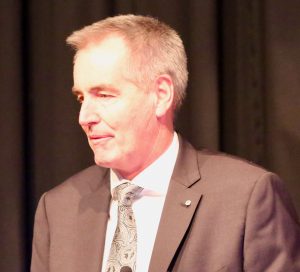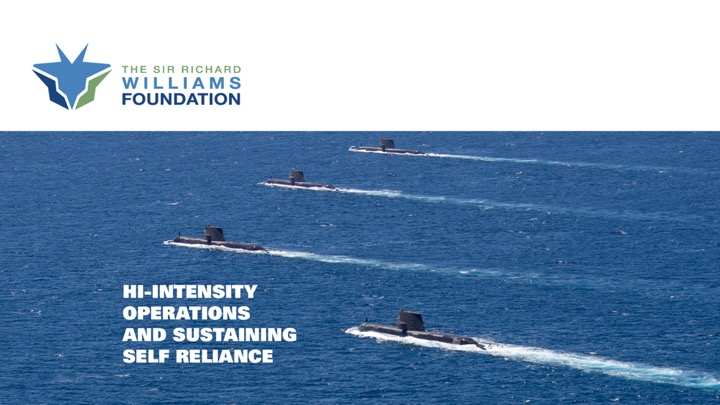Asking the Right Questions about Enhanced Australian Capabilities for the Future: The Perspective of Air Marshal (Retired) Geoff Brown
Dateline: Sydney, Australia
The latest Williams Seminar held in Canberra on April 11, 2019 focused on the strategic shift for Australia within the context of the evolving global situation.
Facing the rising challenge posed by the 21stcentury authoritarian states, and by the changing nature of alliances in the Pacific and in Europe, Australia needs to enhance its capabilities to operate within a regional or global crisis.
And this requires, Australia to have more capability to sustain its evolving integrated force and to do so in the service of the direct defense of Australia.
After the latest Williams Foundation seminar, I had a chance to discuss with Air Marshal (Retired) Geoff Brown who is the Chairman of the Williams Foundation, his take-aways from the seminar.
“One of the key points made which is important to consider when moving ahead is the geography piece and the interest’s allies will increasingly draw from engaging with Australia given what is becoming our strategic location.
“I think that that’s an area where Australia needs to have a closer look at in term of our northern bases which currently are just set up for ourselves.

“At a relatively low cost, you could expand the capacity of those bases in terms of utility and impact in the region.
“And more generally, we need to concentrate on what we can do and need to do on our own, rather than just plugging into an American operation.”
Clearly, what might be called a strategic engagement strategy could be generated by the expansion of how Australia as an unsinkable aircraft carrier might function.
For example, for the American or the Japanese allies, an investment significant, forward deployment of parts for F-35s, along with an, an active defense capability to protect maintenance capabilities, would provide an operating capability for allied maintainers and pilots and as those reserves came in from the RAAF itself.
The parts “buffer” could be used by the RAAF itself in a crisis, or F-35 partners to the crisis, and this include European F-35s as well.
This could be done without a significant Fed-Ex type lift of C-17s and tankers.
Such an approach could be facilitated by the Australian rethink about geography and the use of Australian territory, in a new way, rather than having an either-or policy of bases or flying in for a show of force.
The F-35 as a global enterprise could be leveraged to shape a significant deployable regional capable with allies from outside of the region providing additional capability as well.
“That is very true.
“This is an approach which could and should be examined going forward.”
A key question which came up in the seminar was what is the role of globalization in the era of great power competition.
“The globalization aspect is a key one.
“We have acted on the assumption that the sort of globalization we have seen the past twenty years is the only pathway forward.
“By acting under this assumption, we have generated a number of risks which need to be dealt with, notably in areas such as energy security.”
The other major issue dealt with in the seminar is the question of shaping an eco-system which can support a more sustainable ADF.
“This is a key area which needs significant attention.
“Cleary, we need to hold bigger stocks of expendables and weapons, to take one key example.
“I think that operational support and repair capabilities need to be clearly done in Australia and we are on the way to achieve that goal.
“It may cost us a little more because the scale will be smaller, but we probably just should do it for self-reliance.
“There was a good presentation by MBDA in terms of how the British have developed modular weapons which has allowed them to reduce their logistics footprint and kept their developmental and manufacturing capability as well.
“Looking back at the seminar, I believe it was just the start of the conversation and it’s one that we need to continue.
“But I think we are raising the right questions.”
With regard to the industrial side of the self-reliant effort, clearly the Australians have a number of innovative smaller companies which can be leveraged in various areas as part of the effort.
“The entry point for innovation is changing.
“We have seen this with regard to space and a number of Australian firms are engaging in space innovation.
“We can do a number of key aspects for defense but in a much more cost effective and sustainable manner.
“In terms of the industrial revolution 4.0, you can actually extract new industrial capabilities to support defense in a more effective way.
“And I think we can actually harness capability in far less expensive way than the traditional path that we’ve been on before.”
Enhancing Australian Options in a Crisis: Shaping a More Sustainable Force

